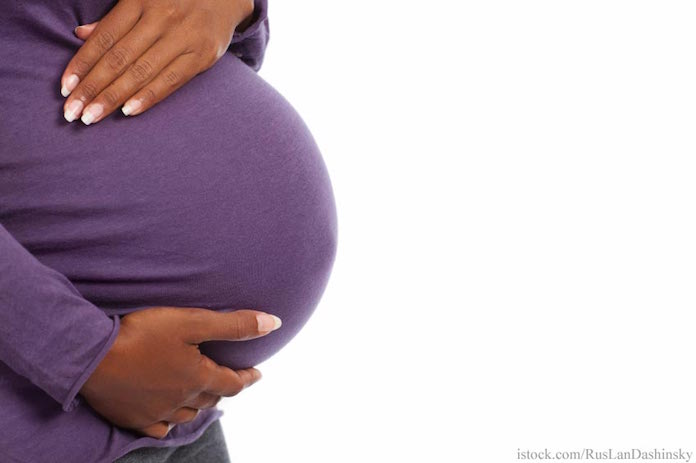FoodSafety.gov is offering food safety tips for pregnant women this holiday season. Pregnant women must always be diligent about food safety, and especially so when attending parties and family gatherings. These women are at higher risk for food poisoning complications, especially listeriosis, the illness caused by Listeria monocytogenes bacteria.

A woman’s immune system is weaker when she is pregnant, which makes her at greater risk of contracting a foodborne illness. Toxoplasma gondii and Listeria monocytogenes are two of the major pathogens to be concerned about. Listeria bacteria can cause miscarriage, premature delivery, stillbirth, infection in the newborn, or the death of a newborn. And toxoplasma gondii can cause hearing loss, blindness, and intellectual disabilities in babies and children. It’s important to know which foods to avoid when you’re pregnant.
Skip raw eggnog and unpasteurized apple cider at holiday parties. Many eggnog recipes contain raw eggs and unpasteurized milk, which could cause Salmonella food poisoning. Raw cider can be contaminated with E. coli bacteria, which can cause serious illness and hemolytic uremic syndrome (HUS), that can destroy the kidneys.
Also avoid eating soft cheeses and cold cuts because they can be contamianted with Listeria monocytogenes and other pathogenic bacteria. Feta and queso fresco could be made with raw milk. Cheeses such as cheddar, Swiss, mozzarella, or cream cheese are safe to eat. Cold cuts could be heated to 165° before eating.
Traditional foods such as chitterlings, and undercooked meats should be avoided. Preparing chitterlings can be messy and labor intensive and can increase the risk of cross contamination in the kitchen. This product can also be contaminated with Yersinia enterocolitica.
Christmas ceviche is another no no. Raw fish is a food poisoning risk because it may contain parasites or pathogenic bacteria. Make sure that all fish dishes are cooked to a minimum temperature of 145°F.
As always, avoid cross contamination between raw meats, poultry, seafood, and eggs and foods that are to be eaten raw. Always wash hands well before cooking and before eating. And make sure that foods are cooked to safe internal temperatures as measured with a reliable food thermometer.




